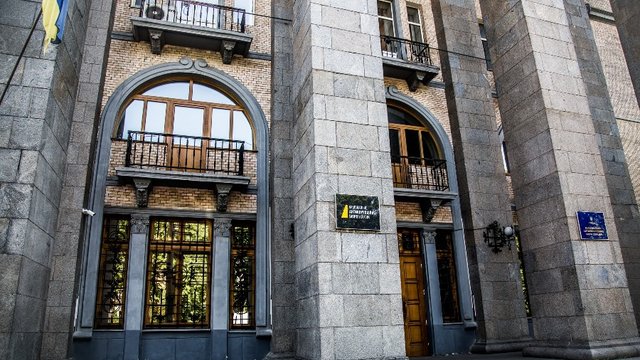Anti-corruption law changes threaten Ukraine defense funding – media

The Organisation for Economic Co-operation and Development (OECD) has warned the President’s Office of Ukraine that the attack on anti-corruption bodies will affect defense investments in Ukraine and reconstruction financing, and also explained what Kyiv should do to overcome the crisis.
This is stated in a corresponding letter addressed to Deputy Head of the President’s Office Iryna Mudra, quoted by the ezine Ukrainska Pravda on Wednesday morning.
In a letter dated July 22, the head of the OECD's anti-corruption department, Julia Fromholz, expressed "deep concern about recent events" related to the adoption of draft law No. 12414, which limits the independence of the National Anti-Corruption Bureau (NABU) and the Specialized Anti-Corruption Prosecutor's Office (SAPO). She stated that this law, which came into force shortly after Ukraine received this letter, significantly undermines the independence of Ukraine's specialized anti-corruption bodies.
The representative of the organization also predicted that these legislative changes could be regarded by the OECP working group as a weakening of Ukraine's compliance with its obligations. Fromholz stated that in the future this law jeopardizes Ukraine's aspirations to join the OECD. Therefore, she called on Ukraine and the president to veto this bill.
"If this letter reaches you after the signing of the bill, we call for further legislative changes to preserve the independence of specialized anti-corruption bodies. I urge you to consider this issue with the utmost seriousness," the document says.
The head of the working group’s secretariat also warned of the consequences for Ukraine if Kyiv does not take action to correct the problem. "If left unresolved, this will not only jeopardize Ukraine's prospects for joining the OECD Anti-Bribery Convention, but also its efforts to join the OECD, but will also undermine its credibility among international partners, including those considering investing in Ukraine's defense sector and its long-term reconstruction," Fromholz said.
As reported, on July 22, the Verkhovna Rada adopted by 263 votes in its entirety the law "On Amendments to the Criminal Procedure Code of Ukraine Regarding the Peculiarities of Pretrial Investigation of Criminal Offenses Related to the Disappearance of Persons Missing in Special Circumstances During Martial Law" with amendments that limited the independence of the NABU and the SAPO.
The Chairman of the Verkhovna Rada, Ruslan Stefanchuk, immediately signed the law and sent it to the President of Ukraine, Volodymyr Zelenskyy, for signature, while under normal practice this occurs after consideration of blocking resolutions submitted by opponents. On the same day, Ukrainian President Volodymyr Zelenskyy signed it.
A number of politicians and public figures, as well as representatives of the European Commission, spoke out categorically against the bill and called on Zelenskyy to veto it.
European Commissioner for Enlargement Marta Kos expressed concern about the Verkhovna Rada's vote on the bill and noted that it was a "serious step backwards". She stressed that "independent bodies such as the NABU and the SAPO are of great importance for Ukraine on its path to the EU."
"The rule of law remains at the very heart of the EU accession negotiations," the European Commissioner added.
Deputy Prime Minister for European and Euro-Atlantic Integration of Ukraine Taras Kachka assured Kos that Ukraine's reform agenda and commitments to join the European Union remain fully valid.
"There will be no compromises on the fight against corruption - Ukraine takes this responsibility seriously," he assured.
On Tuesday evening, protests were held in Kyiv, Lviv, Dnipro, and Rivne against the bill adopted by the Verkhovna Rada.








